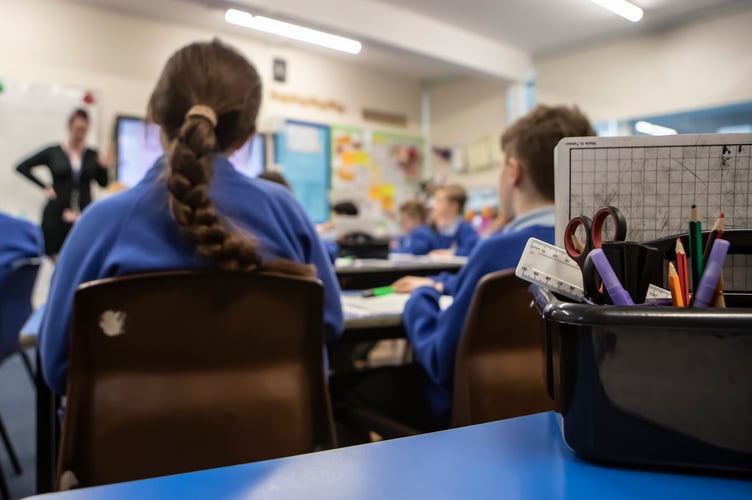The rate of students in Devon persistently absent from school has doubled since the pandemic hit, new figures show.
School leaders’ union NAHT said significant bolstering of funds to support students is needed if the Government is "serious about getting more pupils back into the classroom".
As part of our ongoing series looking at the Covid-19 pandemic's impact on society over the past four years, analysis figures from the Department for Education shows 18,929 students in state-funded schools across Devon missed a tenth or more of sessions.
The school day is split into a morning and afternoon session, with every child expected to attend all sessions.
These students accounted for 21.1% of the 89,785 students enrolled in the area during the 2022-23 academic year.
It was up significantly from 10.4% in 2018-19, before the pandemic.
Across England, 1.6 million pupils were persistently absent – making up 21.2% of students.
It is a slight improvement from 22.5% in 2021-22, but nearly double the level in 2018-19 when just 10.9% of pupils were persistently absent.
Paul Whiteman, general secretary of NAHT, said: "School leaders and teachers are doing all they can to reverse the increase in pupils who are persistently absent post-pandemic, and we are pleased to see the number of children coming back into school is moving in the right direction.
"However, absence rates are still significantly higher than before Covid and much more needs to be done to bring them down."
In Devon, 2,390,000 of 30,993,000 school sessions were missed.
Of these absences, 665,000 (2.1%) were unauthorised. It was up from 1% in 2018-19.
Nationally, the level of unauthorised absences nearly doubled, from 1.4% of sessions in 2018-19 to 2.4% in the last academic year.
The DfE recently announced a series of measures as part of its drive to boost attendance after the pandemic – including increasing fines for parents taking children out of school without permission.
School absence fines for unauthorised absences currently start at £60, rising to £120 if they are not paid within 21 days. From this autumn, they will instead start at £80, rising to £160.




